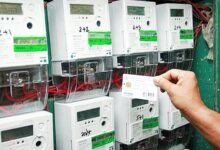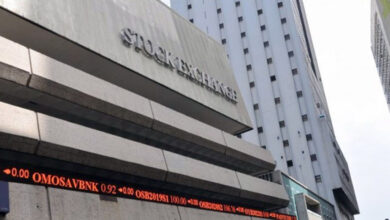Concerns over inactive $252m NTEL facility, missing info on NCC dashboard

Concerns are gradually mounting in the telecoms sector over the inactivity of $252 million NTEL assets in the country.
While is no official statement from the firm on this development, there are, however, several indications pointing out that NTEL might have ceased operation, albeit temporarily.
Except for VoIP services, which showed that NTEL has been stagnant since August 2023, other checks by The Guardian revealed that NTEL statistics are missing on the Nigerian Communications Commission (NCC) dashboard, which is updated almost every month.
NTEL, which had several service outlets some 24 months back, none of such appears functional now. Even the popular one at Alfred Rewane, Ikoyi, when The Guardian visited yesterday, was a shadow of itself. A security guard seen there said the firm has not been operating for some time now,
Besides, there are complaints by customers, who subscribed to NTEL, of not being provided the services they paid for before the sudden closure.
NTEL had emerged from the moribund NITEL in 2015. In December 2014, NITEL was sold to NATCOM Consortium for $252.5 million. It was a complete bundle, which included but was not limited to licences and spectrum, the national fixed wire network, the fibre optic transmission backbone, the national right of way duct system, international gateway earth stations, microwave transmission network, CDMA network system, MTEL GSM network, the SAT-3 international submarine cable system, and the many buildings and other assets across the country.
At the commencement of operations, NTEL launched 4G/LTE services on the 900/1800 MHz spectrum, adjudged as one of the best then.
Relying on sources within the sector, industry analyst, Okoh Aihe, in a very recent article, disclosed that when NTEL launched its 4G services in April 2016 with a promise to provide the best and most affordable data, leaving its 2G and 3G bands out, it was the wrong thing to do. He said not many subscribers had handsets for 4G and consequently, NTEL was left in a lonely world where it had little connections with other operators.
“Not so many handsets could do 4G. The customers they have are data customers,” Aihe quoted one of the sources.
Amidst these challenges, sources within the NCC also revealed that NTEL has not been consistent in the payment of its Annual Operating Levy (AOL), Numbering Plan and Spectrum fees, which are the three primary sources the government and the regulator make money from the industry.
Aihe in the article revealed that NTEL is with the Asset Management Corporation of Nigeria (AMCON), saying sources claimed that the telecommunications firm has ceased to exist as a corporate concern, disclosing that the organisation couldn’t pay its bills including interconnect and co-location charges to its business partners.
“However, one was informed that AMCON kept an eye on the operations of NTEL to protect the government’s interest as a shareholder. And this turned out to be a rewarding watch as multiple industry sources confirmed that some top NTEL officials were more interested in stripping the assets of the organisation that are strewed all over the country. In the hands of AMCON, I am told, NTEL is safe, and so are the assets but its services are as good as dead,” he stated.
A senior staff of the telecommunications firm, who preferred anonymity, neither confirmed nor denied there are challenges when he spoke with The Guardian.
“I cannot say much now, the company’s management will talk. There are some facts beyond me. They will be able to tell you more about why the company has not been operating in the last few months. Also, if we get details of those who bought what (data) from the company, we can check the system and make refunds if need be,” he stated.







